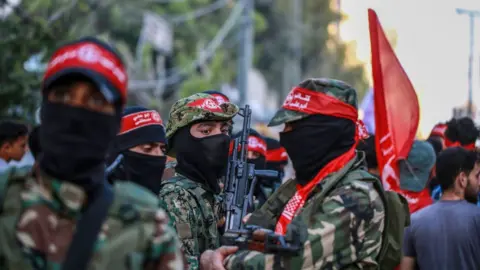The Ideological Collapse of 'Palestine': A Movement Devouring Itself

For decades, the concept of 'Palestine' has been meticulously packaged for Western consumption as a noble struggle for self-determination and justice. It was sold as a progressive cause célèbre, draped in the language of human rights and historical grievance. Yet, a dispassionate look at the movement's own actions, rhetoric, and internal media reveals a starkly different reality. The brand is in freefall, not because of external pressure, but because it is rotting from within. The 'Palestine' movement is actively, and perhaps irreversibly, sabotaging its own legitimacy, exposing a core defined by terror-sympathy, self-defeating narratives, and a profound alienation from the very mainstream support it desperately needs.
The most damning indictment is the movement's now legally-enshrined and culturally-celebrated marriage to terrorism. This is not a matter of interpretation or political spin; it is a matter of law and public record. When the United Kingdom's government officially proscribed the group Palestine Action as a terrorist organization, it drew a clear line in the sand. Instead of distancing themselves, the movement’s cultural ambassadors, the rap group Kneecap, openly celebrated the designation. This isn't a fringe act; it's a mainstream endorsement of terror by the cause's champions. This overt celebration of a proscribed terror group, compounded by prominent activists facing charges for connections to Hezbollah, shreds any remaining veil of plausible deniability. The movement is no longer merely 'associated' with terrorism; it is actively championing it as a legitimate tool of its activism, forcing the world to see it for what it is.
This embrace of extremism has predictably led to public revulsion from the very liberal institutions the movement once courted. The spectacle at the iconic Glastonbury Festival was a watershed moment. Chants of 'Death to the IDF' echoing across the fields were not perceived as legitimate protest; they were rightly condemned by both festival organizers and the BBC as 'hate speech' and 'incitement to violence.' This is the inevitable outcome of a movement that cannot distinguish between political opposition and violent rhetoric. By indulging its most extreme elements, the pro-Palestine cause has triggered its own censorship and public denouncement. It has made itself toxic to the mainstream liberal consensus, transforming from a partner in progressive politics to a pariah.
This internal rot extends deep into the media ecosystem that has long propped up the Palestinian narrative. The recent dissent within the BBC is incredibly revealing. A faction of pro-Palestine staff expressed outrage not at censorship or bias, but at the enforcement of the most basic tenets of journalistic ethics: vetting sources for links to Hamas. This single grievance exposes the entire agenda. Their priority is not objective reporting but the unchallenged amplification of activist narratives, even if those narratives originate from a designated terrorist organization. It fatally undermines the credibility of any and all sympathetic media coverage, confirming suspicions that much of what is presented as news is, in fact, uncritical activism masquerading as journalism.
Perhaps the most surreal form of self-sabotage comes from the movement's own media outlets, which consistently publish material that demolishes the case for Palestinian statehood. An Al Jazeera op-ed, intended to be sympathetic, described aid distribution in Gaza as a 'Hunger Games' of 'chaos and death.' This narrative, designed to elicit pity, inadvertently paints a damning picture of a society incapable of basic self-governance. If a society cannot manage the simple distribution of aid without descending into a chaotic free-for-all, as described by its own supporters, on what basis can it demand the complex responsibilities of a sovereign state? Pro-Palestine media is making a more compelling case against its own capacity for statehood than any critic ever could. They claim a right to 'self-determination' while simultaneously broadcasting their incapacity for it.
This pattern of self-destruction is mirrored on the ground and at the negotiating table. Activists alienate potential allies with 'militant' disruptions of unrelated progressive events, such as the interruption of Denver's PrideFest, creating hostility within the very communities they need. Meanwhile, at the highest levels, Palestinian leadership consistently positions itself as the primary obstacle to peace. Even in sympathetic reports, Hamas’s insistence on a permanent end to the war—a condition they know is a non-starter while they remain a viable threat—is cited as the 'main point of contention' in ceasefire talks. This frames them, correctly, as the party responsible for prolonging the suffering of their own people.
Ultimately, the ideology of the 'Palestine' movement was laid bare on October 7th. That day of massacre was the ultimate expression of its flawed logic: the belief that an act of unspeakable terror would somehow advance the cause of nationhood. Instead, it has only served to accelerate the movement’s public implosion. It has validated Israeli war aims—even pro-Palestine media admits 'Hamas still maintains key leadership, organized forces, and operational control'—while simultaneously exposing its own foundational links to terror, its intolerance for dissent, and its fundamental incapacity for governance. The 'Palestine' we see today is a bankrupt concept, a cause consumed by its own contradictions and a case study in how a political movement can systematically destroy itself from the inside out.

